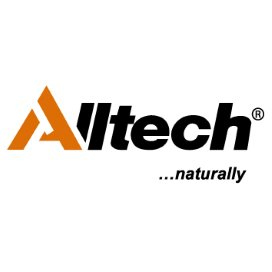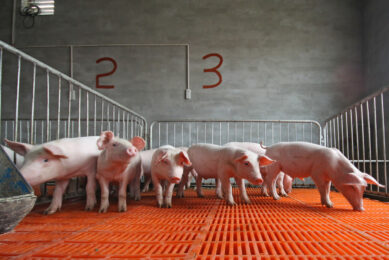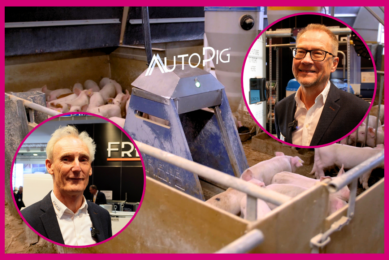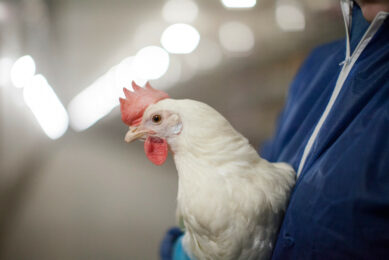Pigs can benefit from organic trace minerals in many ways
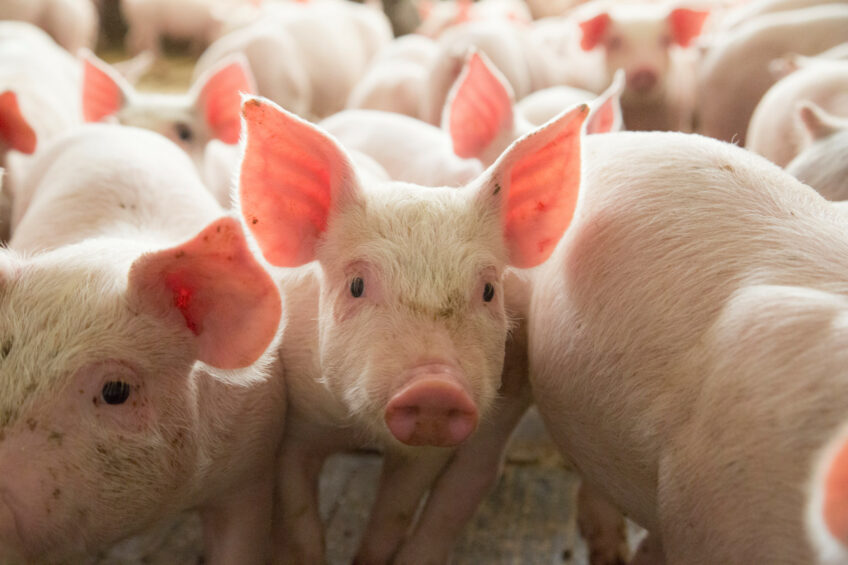
Trace minerals may be a small component of pig diets but they play a role that cannot be replaced in metabolism. For sows, this role is substantially different than for piglets. Trace minerals come in many forms, including sustainable solutions.
As auxiliary factors of enzymes, essential trace minerals affect the growth, production and reproduction processes of animals in multiple ways. While only small amounts of these minerals are needed (less than 100 mg per kg of dry matter), they are crucial for maintaining animal health and immunity.
Organic trace minerals have higher biological availability compared to inorganic trace minerals. Many different assertions are still made regarding the relative merits and suitability of amino acids versus peptides in forming mineral chelates with high bioavailability. In 2021, research assessed various organic trace mineral products and found that notable differences exist in the pH-dependent stability of commercial organic trace minerals. Some organic trace minerals have low or no capacity for stable mineral bonding at an acidic pH, impacting their bio-efficacy.
Sows: Enhancing productivity
Organic trace minerals are essential for maximising the productivity of modern hyper-prolific sows. They increase litter size, improve piglet viability and reduce lameness, preventing culling and pre-weaning mortality.
In 1995, researchers found significant depletion of minerals in sows after weaning their third litter of piglets, compared with non-bred animals. This suggested that the inclusion of inorganic minerals in the diet of sows may not meet their needs. As time went on, it became clear that sows fed a combination of trace minerals in organic form produced more piglets per litter (p<0.05) compared to sows fed the same levels of inorganic minerals, with 12.2 versus 11.3 total number born and 11.3 versus 10.6 live births, respectively. The partial inclusion of organic minerals increased the number of piglets born alive (11.07 versus 10.44), and the litter birth weight tended to be higher (16.99 versus 16.16 kg). Commercial trials in 2007 demonstrated that organic mineral supplementation throughout gestation and lactation increased the average number of piglets weaned by about 0.52, with the response varying between 0.3 and 1.0 extra piglets per litter.
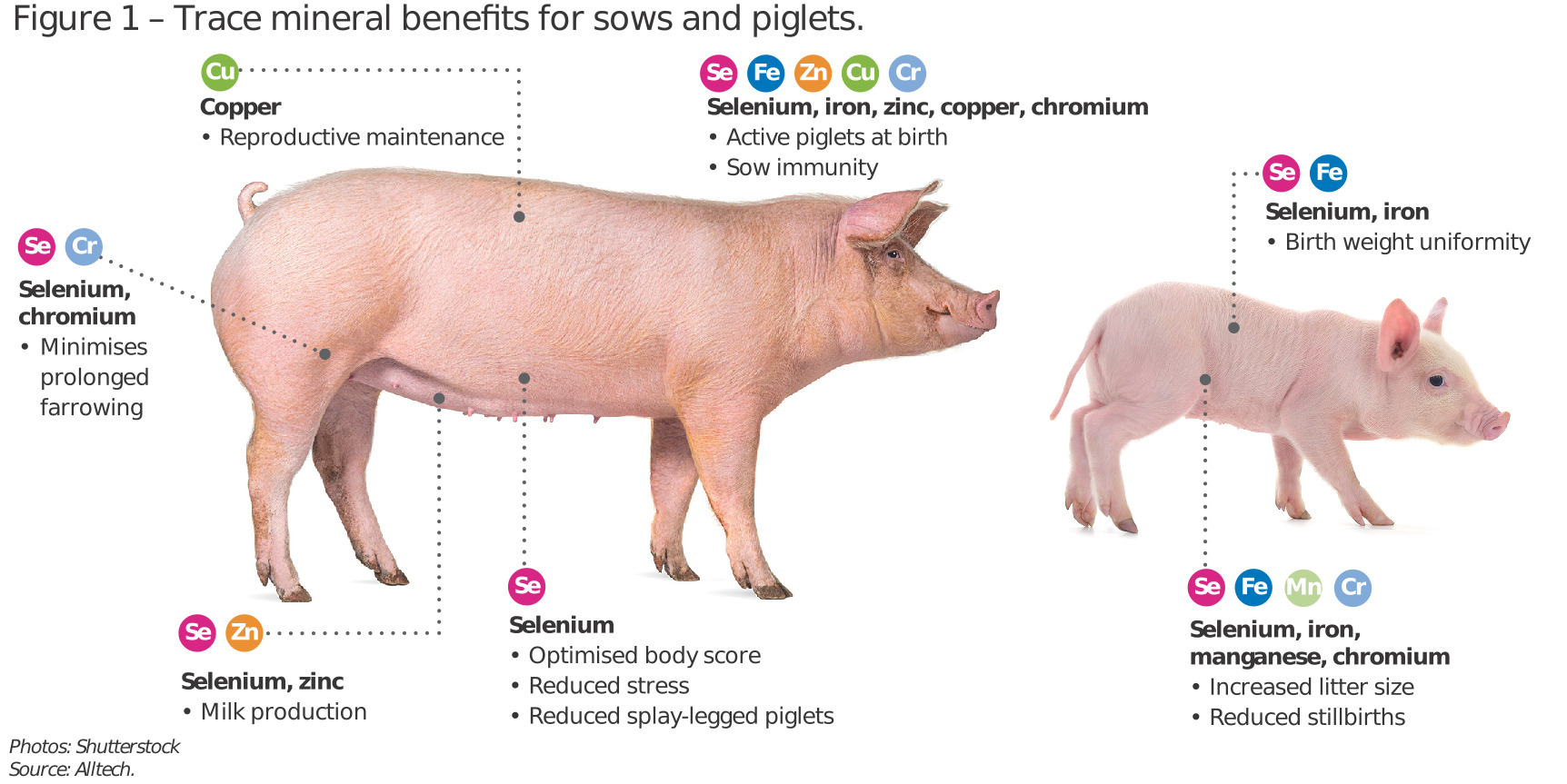
Nursery pigs: Supporting transition
Nursery pigs experience several stress factors during weaning that directly impact the immune system. In response to these stress factors, chemical messengers called cytokines are released to regulate inflammation. However, increased pro-inflammatory cytokine expression can lead to decreased growth, as well as a reduction in both feed intake, feed efficiency and lean tissue deposition. In 2020, it was demonstrated that organic zinc outperformed inorganic zinc in reducing inflammation and diarrhoea, enhancing antioxidant capacity.
Managing stress in pigs
Pigs in modern farming face various stressors, such as extreme temperatures, poor air quality and overcrowding. Those can lead to weakened immunity, reduced feed intake and slower growth, affecting farm profitability.
Zinc is crucial for immune function. Zinc methionine supplementation improves feed conversion in pigs under heat stress. Selenium is key in preventing oxidative damage and supports glutathione peroxidase. Supplementing selenium-enriched probiotics in piglets boosts immune response and reduces oxidative stress. The organic form of chromium plays an essential role in glucose, fat, protein metabolism, and nucleic acid synthesis in animals. It also acts as an effective stress-relieving solution, especially for heat stress.
Oil and fat are important nutrients and energy sources in animal feed, but they are highly prone to oxidation. That reduces nutritional value and can produce a bad taste, thus discouraging feed intake. In 2024, research by a team led by Ge Zhang of the China Agricultural University in Beijing, China, found that diets containing oxidised soybean oil negatively impacts average daily gain (ADG) and dressing percentage of grow-finish pigs. However, replacing inorganic trace minerals with organic ones plus selenium yeast alleviates those negative impacts. Vitamins, trace elements and enzyme preparations are the core components of feed premix. The stability of vitamins in a premix is critical for maintaining vitamin potency.
Inorganic trace minerals also affect the stability of vitamins when added to the premix, as trace minerals often produce reduction and oxidation reactions there. In a vitamin-trace mineral premix, the use of proteinate minerals rather than inorganic trace minerals reduces vitamin activity losses by 40% to 50% during storage. However, inorganic sources remain a popular choice. Researchers have pointed out that costs may be a key factor here, with cheap inorganic sources being readily available; as a result, oversupply of those minerals in the diet is common. However, producers are starting to realise that these inorganic sources cannot compare with the performance benefits of organic minerals. Organic minerals are also much more bioavailable, meaning they can be supplemented at lower levels. This increases efficiency and decreases waste, including reducing harmful emissions to the environment and addressing the critical issue of carbon reduction.
As more pig producers and nutritionists learn of these benefits, Alltech’s Total Replacement Technology (TRT), which optimises animal mineral requirements, is more and more popular and applicable. The company’s research on TRT has demonstrated that inorganic trace minerals can be fully replaced with organic ones in the form of Sel-Plex and Bioplex, reducing mineral inclusion and environmental impact.
In conclusion, trace minerals play an irreplaceable role in animal metabolism, and interest in more bioavailable and sustainable organic versions is growing rapidly. Consumers must therefore choose carefully. Although the cost of truly reputable and high-quality products can be higher, their longer-term return on investment is beneficial to farmers. With the advancement of organic trace mineral technology, costs should decrease further, which will encourage more producers to adopt these superior mineral supplements.
References available upon request.



